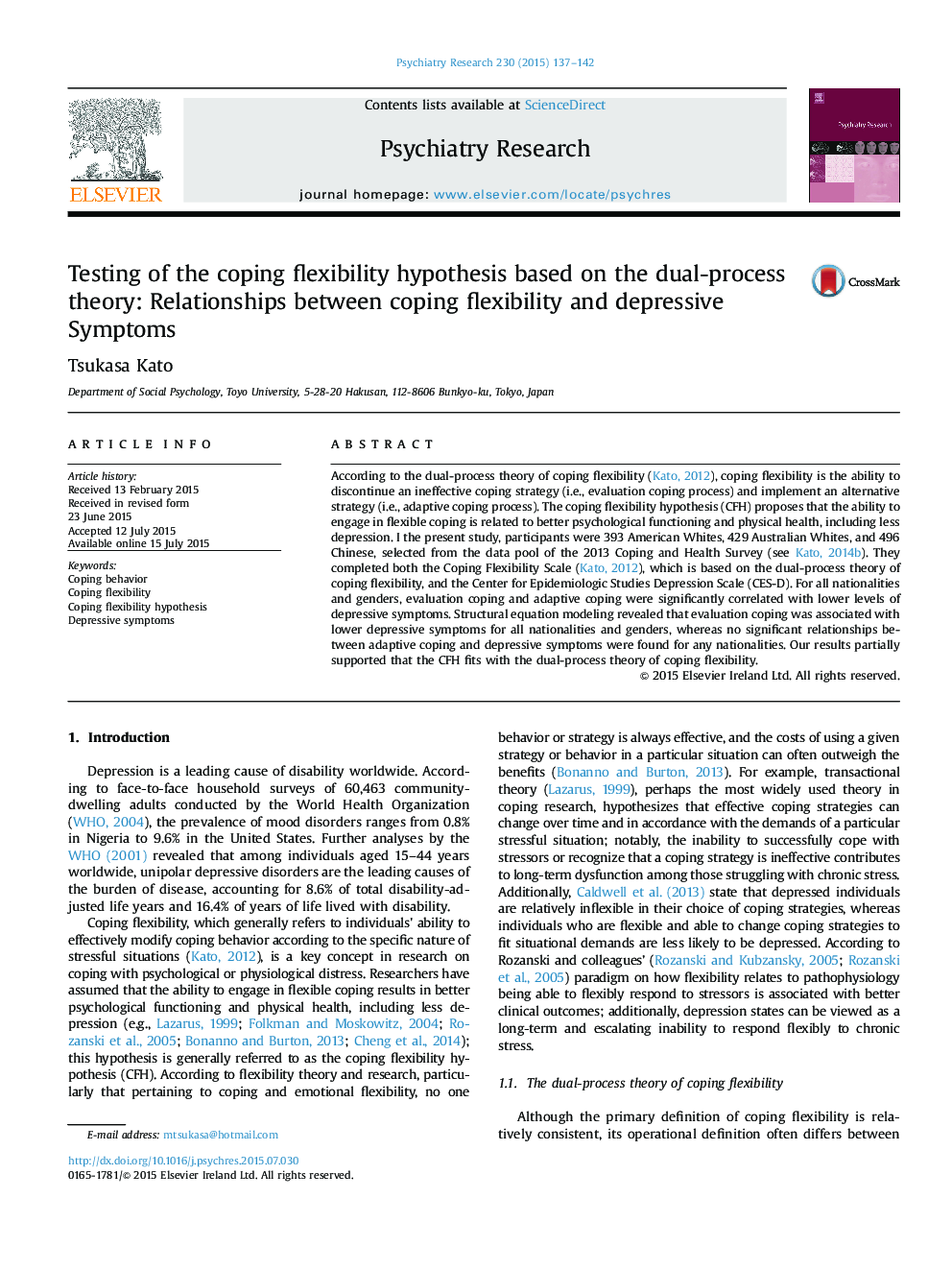| Article ID | Journal | Published Year | Pages | File Type |
|---|---|---|---|---|
| 10303567 | Psychiatry Research | 2015 | 6 Pages |
Abstract
According to the dual-process theory of coping flexibility (Kato, 2012), coping flexibility is the ability to discontinue an ineffective coping strategy (i.e., evaluation coping process) and implement an alternative strategy (i.e., adaptive coping process). The coping flexibility hypothesis (CFH) proposes that the ability to engage in flexible coping is related to better psychological functioning and physical health, including less depression. I the present study, participants were 393 American Whites, 429 Australian Whites, and 496 Chinese, selected from the data pool of the 2013 Coping and Health Survey (see Kato, 2014b). They completed both the Coping Flexibility Scale (Kato, 2012), which is based on the dual-process theory of coping flexibility, and the Center for Epidemiologic Studies Depression Scale (CES-D). For all nationalities and genders, evaluation coping and adaptive coping were significantly correlated with lower levels of depressive symptoms. Structural equation modeling revealed that evaluation coping was associated with lower depressive symptoms for all nationalities and genders, whereas no significant relationships between adaptive coping and depressive symptoms were found for any nationalities. Our results partially supported that the CFH fits with the dual-process theory of coping flexibility.
Related Topics
Life Sciences
Neuroscience
Biological Psychiatry
Authors
Tsukasa Kato,
